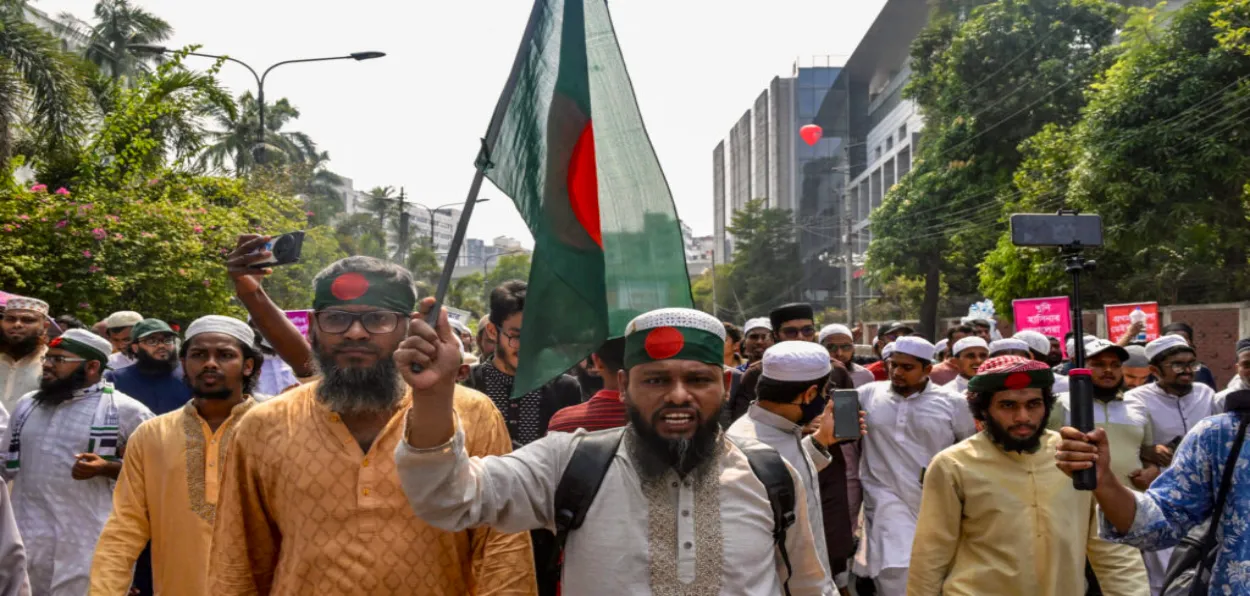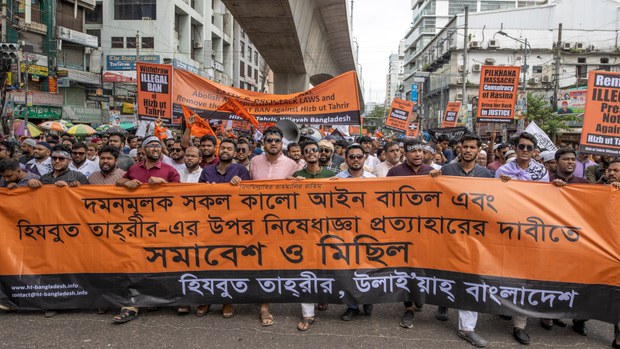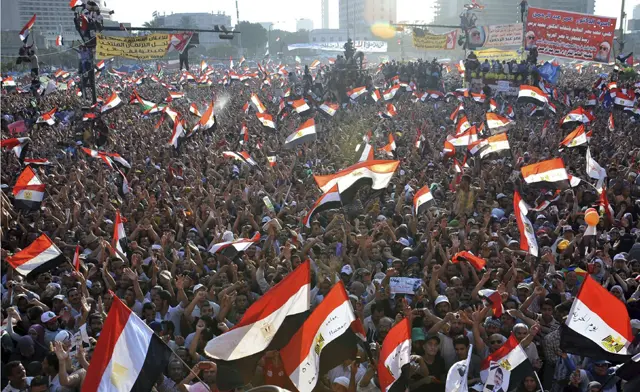
Aditi Bhaduri
August 5 marked the first anniversary of the uprisings in Bangladesh, in which Sheikh Hasina and her Awami League government were forced to end their reign. Often dubbed a revolution, in popular imagination, it is the overthrow of an unpopular, authoritarian, and oppressive government by a popular, spontaneous uprising.
Over the decade, Hasina had indeed ruled with an iron fist, jailing her opponents, indulging in nepotism and corruption, and even resorting to Assad-style violence to counter the spontaneous students' uprising. However, under her government, Bangladesh had also made strides in economic prosperity as well as in other developmental indices like women’s empowerment, female and child mortality, while keeping the country in general secular, with minorities in general feeling the same, though the Islamists were steadily gaining power.
Hasina had also rescinded the judicial decision to enlarge the quota system, which had sparked the initial movement. That it snowballed into a violent movement and ended with her fleeing the country was because the radical Chatro Shibir, the student wing of the Jamaat e Islami, Bangladesh, infiltrated and manipulated the movement. An interim government, headed by Chief Advisor Mohammed Yunus and his Council of Advisers, was installed by the Anti-Discrimination Students Movement following Hasina's ouster.

Jamaat-e-Islami demonstration in favour of Greater Bangladesh
The rest is history
Since then, Bangladesh has lurched into extremism, greater autocracy, and anarchy. There is a mutiny-like situation within the army, the army has been threatening the government, and the government is unwilling to commit itself to a clear timeline for elections. The Jamaat has grown stronger and is now flexing its muscle. It has recently been deregistered as a political party, while another foreign radical group, the Hizb ur Tahrir making rapid inroads in Bangladeshi society. (Incidentally, this organization is banned in many Muslim countries like Uzbekistan and Kazakhstan). Attacks not only on minorities, but also women continue; the Hindu priest Shyam Das Prabhu continues to languish in jail.
The much-promised reforms have been stalled, and recently, a massacre took place in the Gopalganj area. Politically, the country has drawn closer to the US and China. The greatest surprise, however, has been the rapid closeness achieved with Pakistan, including between the armies and the intelligence agencies of both countries.
All these developments are eerily reminiscent of the Arab Spring that unfolded in Egypt. There too, the government of President Hosni Mubarak. He ruled Egypt with an iron fist, suppressed the opposition, jailed his opponents, encouraged nepotism and corruption, and smothered democracy. Yet, he also kept the country relatively secular, radicalism at bay, had banned the activities of the radical Muslim Brotherhood, which is the Middle Eastern twin of the Jamaat e Islami, and which historically has had a strong presence in Egypt. Women were empowered, and minority religions like the Coptic Christians generally felt safe.
However, when the Arab Spring swept through Egypt, it felled Mubarak's regime. Opposition to his rule had been building up over the years, and five years before the Arab Spring, the first major protests, initially by women, took place in Cairo. By the time the Arab Spring arrived, the dissatisfaction had reached its crescendo. Mubarak was forced to resign. Martial law was imposed. Within a year, local referendums brought the Muslim Brotherhood to power with President Mohammed Morsi at the helm. Since Mubarak had locked away most of his opponents and framed laws that made it almost impossible for anyone else to contest against him, Egypt was left without any viable opposition. Islamists filled the vacuum.

Tahrir Square protests in Egypt against the Muslim Brotherhood regime
Likewise, in Bangladesh, Sheikh Hasina had thrown many of her opponents into prison while co-opting the Islamists who were steadily gaining ground. Moreover, the BNP had always tuned to groups like the Jamaat for electoral victory. With Hasina gone, the Islamists have run amok; their recent rally in Dhaka was one of the major power projections. To shore up his position and popularity, and also conceding to American demands, Chief Advisor Muhammad Yunus has not just delisted the Jamaat -- banned by Hasina -- but also allowed its reregistration as a political party. This time, the Jamaat is all set to contest elections.
What Next?
A year since Hasina's ouster, Bangladesh has only chaos and regression; a great erosion of women's and minority rights to show. In May, thousands of Islamists hit the roads of Dhaka to oppose the government's proposed recommendations for ensuring equal rights, including those related to property, for mainly Muslim women. The protest was called by Hefazat-e-Islam, an offshoot of the Jamaat, claiming that some of the proposed recommendations hurt "the sentiments of the majority of the people of this country". These were draft recommendations of the Women's Affairs Reform Commission instituted by Muhammad Yunus' interim government. Of all the commissions he set up, the women’s commission was the only one to submit a draft proposal.
This is just a taste of things to come.
In Egypt, the interim period had been chaotic, but it did not infringe on the rights of minorities. However, within a month of Morsi's coming to power, he had managed to turn most Egyptians against his government. He clamped down on individual and women's rights. He authorized himself to prevail over the judiciary, and within a year, people were back on the streets and in Cairo's famed Tahrir Square, calling for his resignation. And Morsi was forced to resign and convicted. While Egypt is not the epitome of democracy, it has continued to protect women's and minority rights, the rule of law, and to keep the country secular and free of radicalism.
The protests and demonstrations in Tahrir Square against the excesses of the Morsi government triggered the Shahbagh Movement, the same year, miles away in Dhaka. Protesters demanded the rollback and even a ban on the Jamaat and for war criminals of the Bangladesh Liberation War to be put to death, which did bear fruit.
According to a Bengali saying, "Some learn through observation; others through tribulation." No doubt Bangladeshis will know this saying. Can Bangladesh do a Tahrir now? Or will they learn through tribulation?
